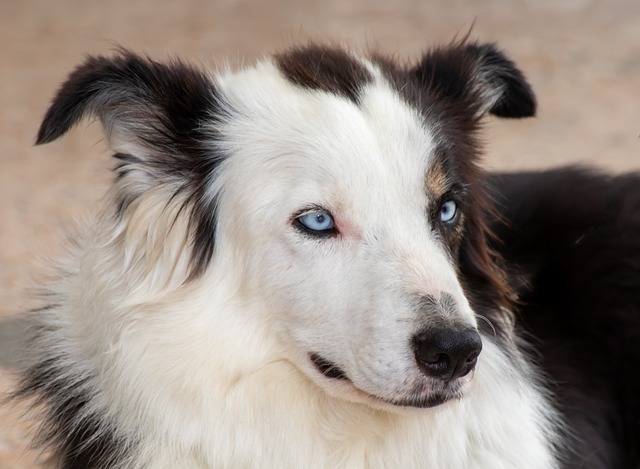
Is standing for a long time harmful to a dog's body
When we see dogs performing on their hind legs in circuses or street entertainers training dogs to stand for prolonged periods to beg,
When the owner finds that the dog, who is usually lively and energetic, suddenly coughs frequently, breathes rapidly, and becomes listless at home, his heart is instantly filled with worry. Dog bronchitis is a common respiratory disease. Why does a safe and warm home become a "hotbed" for the disease? From the perspective of professional veterinary medicine and animal behavior, combined with deep care for dogs, we explore the reasons why dogs get bronchitis at home. This is not only an exploration of the root cause of the disease, but also an urgent need to protect the health of fur children.
Indoor air quality is one of the important factors that cause dogs to get bronchitis at home. In modern families, various decoration materials, cleaning supplies, and chemical substances emitted by furniture may irritate the dog's respiratory tract. In newly renovated houses, harmful gases such as formaldehyde and benzene remain. If dogs are in such an environment for a long time, the respiratory mucosa will be damaged, the resistance will be reduced, and inflammation will be easily caused. Even if you have lived in a house for a while, if you do not pay attention to ventilation, the accumulation of allergens such as dust, dust mites, and mold spores in the air can also become a cause of bronchitis.
If pet supplies at home are not cleaned properly, it will also threaten the respiratory health of dogs. If dog beds and mats are not cleaned and dried for a long time, bacteria and mites are easy to breed. When dogs rest on these bacteria-filled supplies, the inhaled bacteria will directly enter the respiratory tract and cause infection. In particular, humid environments are a hotbed for mold growth, and once the spores produced by mold are inhaled by dogs, they may irritate the bronchi and cause inflammation. In addition, dog toys also need to be cleaned and disinfected regularly. If the toys are stained with dust and saliva and are not handled in time, they will also become a "safe haven" for bacteria.
 Climate changes, even at home, will affect the respiratory tract of dogs. In the cold winter, the temperature difference between indoors and outdoors is large. When dogs enter and leave the room, their respiratory tract is stimulated by the sudden change in temperature, which can easily cause bronchial spasms and reduce the resistance of the respiratory tract. In the hot and humid summer, excessive use of air conditioners makes the indoor air dry. The lack of sufficient humidity will make the dog's respiratory mucosa fragile, reduce mucus secretion, and fail to effectively resist the invasion of germs. Especially some small dogs, elderly dogs and puppies, their respiratory tracts are more sensitive, and their ability to adapt to environmental changes is poor, and they are more likely to suffer from bronchitis in such an environment. Every time the seasons change, the owner is particularly worried about the health of the dog. Watching them adapt to the changes in the environment, they only hope to create a more comfortable and healthy living space for them.
Climate changes, even at home, will affect the respiratory tract of dogs. In the cold winter, the temperature difference between indoors and outdoors is large. When dogs enter and leave the room, their respiratory tract is stimulated by the sudden change in temperature, which can easily cause bronchial spasms and reduce the resistance of the respiratory tract. In the hot and humid summer, excessive use of air conditioners makes the indoor air dry. The lack of sufficient humidity will make the dog's respiratory mucosa fragile, reduce mucus secretion, and fail to effectively resist the invasion of germs. Especially some small dogs, elderly dogs and puppies, their respiratory tracts are more sensitive, and their ability to adapt to environmental changes is poor, and they are more likely to suffer from bronchitis in such an environment. Every time the seasons change, the owner is particularly worried about the health of the dog. Watching them adapt to the changes in the environment, they only hope to create a more comfortable and healthy living space for them.
Dogs' dietary problems may also be related to the occurrence of bronchitis. During feeding, if food is accidentally choked into the trachea, it may cause aspiration pneumonia and then develop into bronchitis. This is especially likely to happen when dogs eat too fast and fight for food. In addition, long-term consumption of poor quality dog food lacks necessary nutrients, which will lead to a decrease in the dog's immunity and make the respiratory tract more susceptible to germs. Some owners neglect to control the quality of dog food because of their busy work. When the dog gets sick, they are full of self-blame and regret. They wish time could go back and they could pay attention to the dog's diet and health earlier.
In addition to environmental and dietary factors, the dog's own health status is also a reason that cannot be ignored. Dogs with congenital heart disease, tracheal collapse and other diseases have weak respiratory function and are more likely to suffer from bronchitis. At the same time, poor oral hygiene may also be the fuse of bronchitis. If the bacteria in the dog's mouth are not cleaned in time, they will enter the bronchi through the respiratory tract and cause infection. Some dogs will have decreased respiratory resistance after being infected with infectious diseases such as canine distemper and kennel cough, and will be more likely to suffer from bronchitis later. Seeing the sick dogs listless and their bright eyes losing their luster, the owners wish they could bear the pain for them, hoping to find the cause and let the dogs recover as soon as possible.
Dogs suffering from bronchitis at home are the result of the combined effect of multiple factors. From the seemingly ordinary home environment to daily diet and health management, every detail may affect the respiratory health of dogs. As owners, we have the responsibility to protect their health. Only by deeply understanding the causes of these diseases and starting from the little things in life to create a clean, comfortable and healthy living environment for dogs can we keep them away from the troubles of bronchitis. When the dog regains vitality, runs happily at home, and expresses happiness with warm eyes and wagging tails, all our efforts have the best meaning.

When we see dogs performing on their hind legs in circuses or street entertainers training dogs to stand for prolonged periods to beg,

When we prepare to greet the dog's warm greeting as usual, we find that the once bright and clear eyes have become red and swollen, and the dog keeps scratching with its claws, with a look of discomfort and helplessness in its eyes.

When you notice your beloved dog constantly scratching, biting itself, or see its once-smooth coat becoming red, swollen,

When you see your beloved dog constantly scratching or notice suspicious black specks in its smooth fur, it’s natural to feel concerned. Parasites are a common health issue for dogs,

When we look into the eyes of dogs, the originally bright and clear eyes suddenly show distressing red bloodshot, and even become swollen and secrete more.

At the moment when the door closes, there comes the heart wrenching barking of dogs inside the house, or when they come home and see a chewed sofa and scattered slippers,